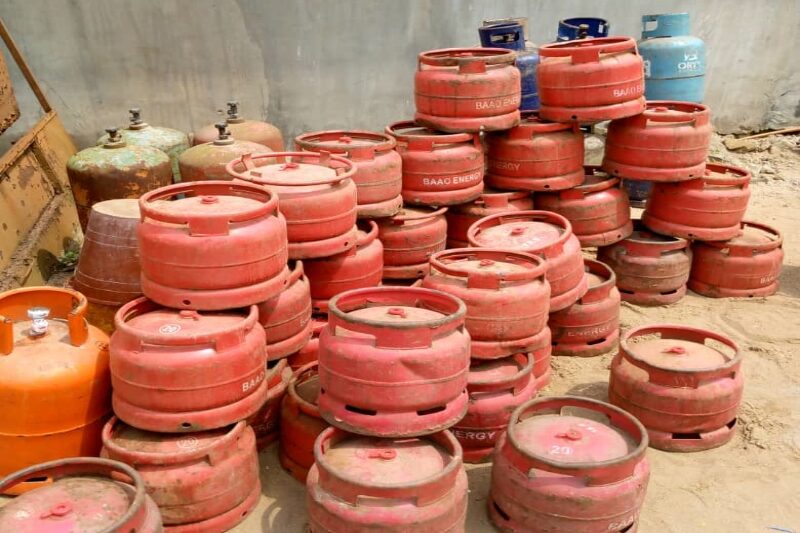There is some reprieve for cash-strapped Nigerians – at a time when fuel prices are skyrocketing, cooking gas prices are crashing.
In the past two months, the price of refilling a 12.5kg cylinder of liquefied petroleum gas (LPG), which is used for cooking, has reduced by 30% on the back of lower crude oil prices and a decline in international gas prices.
In major cities across Nigeria, the price of cooking gas has fallen from about ₦10,000 to ₦7,000.
A full 12.5kg cylinder that used to cost about ₦14,000 now costs ₦6,950 in Lagos and about ₦10,000 in Borno State.
Cooking gas is now selling between ₦700 and ₦800 per kilogram. Just a few weeks ago it cost more than ₦1,000 per kilogram.
The drop in prices has eased some of the burden on cash-strapped households, which had been hit by hikes in the price of cooking gas and food since the beginning of last year.
Then, when newly elected President Bola Tinubu announced the suspension of the fuel subsidy, the cost of petrol skyrocketed. This, combined with the recent introduction of redesigned ₦1,000, ₦500 and ₦200 banknotes, added to the financial crisis, and had a devastating effect on households around the country.
But, in the past two months, the price of cooking gas has crashed, giving some reprieve to citizens.
Unlike petrol, the price of cooking gas is not fixed and is not subsidised by the government. This means the cost is majorly determined by supply and demand, as well as prices on international markets.
Muktar Alhaji, an environmental expert and a public affairs analyst, said the decrease in the price of LPG products was likely to trigger a high demand for cooking gas.
“This will be good for the country because it will contribute towards reducing the effect of climate change on biodiversity. The hope is that people might stop the excessive use of charcoal and firewood, mitigating the issue of deforestation.
“Before the decline in cooking gas prices, many households, particularly those in the rural areas, used mainly wood and charcoal. People in the rural areas cut down trees for firewood and to make charcoal. There are large tracts of land where trees were cut down and no one planted others in place of these, adding to the effects of climate change on biodiversity, affecting animals, plants and humans. If people can get a cooking gas at a cheaper price, the pressure on nature will be less and deforestation will be reduced.”
Alhaji said some Nigerians believed that the drop in the price of gas was an indication that the price of petrol would also crash when the subsidy was removed.
But experts in the field said the production of LPG was different from the refinery process of petrol. Because of this, the price of cooking gas was not subsidised and had always been determined by market prices and depended on supply and demand. The reported drop in cooking gas prices, they said, could be due to an increase in supply and demand.
Umar Musa Mustapha, who sells gas in Maiduguri, the capital of Borno State, told RNI the price of a 12.5kg cylinder of cooking gas had fallen from ₦11,000 to about ₦10,000, a ₦1,000 drop.
“The price of cooking gas remained stable until few weeks ago when the cost began falling. This could be because of the demand for LPG products and fluctuations in the price on the international market.”
Bukar Abatcha, a resident of Maiduguri, told RNI that to refill an 8kg cylinder cost ₦8,800 but the price now was ₦8,000.
SHETTIMA LAWAN MONGUNO









